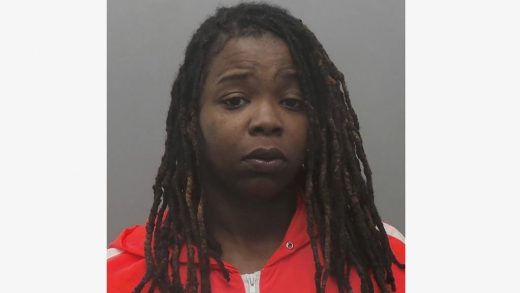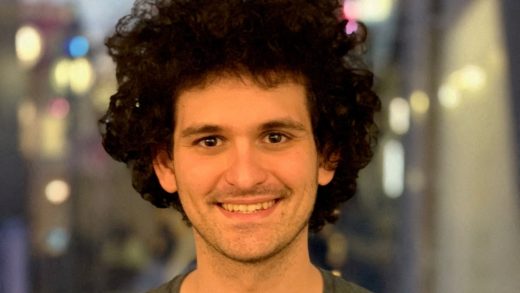I am a Canadian Jew and a Zionist. My family history is one of Russian pogroms, exclusion from clubs, neighbourhoods, and careers and university quotas for Jewish students. There has never been a time, in any country, except Israel, when Jewish people were not hated, reviled, or killed, for no other reason than their being Jewish.
I don’t think, for a moment, that Jewish people are the only people who have been in that position. The Black and Indigenous communities (and others) are well aware of how that feels, what the consequences of exclusion are and the hopelessness parents feel when they despair about the lack of opportunities for their children. I assume that many Palestinians feel the same way.
The establishment and existence of the State of Israel means everything to me. It is a country in which Jewish people do not have to keep their bags packed because they’re going to be kicked out. It is a place where Jewish people can learn, teach, work and play without being harassed, assaulted and excluded just because they’re Jewish.
RYAN REMIORZ / THE CANADIAN PRESS Pro-Palestinian activists at their encampment on the McGill University campus April 30 in Montreal.
But Israel, the land, means so much more. I hear Palestinians and their supporters say that Israel is on the land where they lived. Yet, Israelis can, perhaps, more easily claim their (biblical) “ownership” of the land, and that they were “kicked” out after the destruction of the Second Temple. I suspect that it is true of many countries that they were once the property of others than those who now occupy the land. Canada and the U.S. occupy land that once was occupied only by the Indigenous Peoples.
For religious Jews, Israel has always been “the promised land,” chosen for them by G-d. The phrase “Next Year in Jerusalem” has been the dream, the hope, the promise and the need for Jews for centuries. For secular Jews, Israel represents a home where they can belong, in which they can feel pride, where they can feel hope, so truly represented by the Israeli national anthem, “Hatikvah,” which means “hope.”
The intensity of the hatred that I see and hear in the pro-Palestinian protests scares me, not only as a Jewish woman, but also as a civilian. While many people defend the protesters through their right to free speech, and say that the protests are not against Jews (not antisemitic) but against “Zionism,” the targets of the verbal and physical assaults are Jews. The protesters don’t know whether those Jews are or are not “Zionists”; they only know that they are Jews. And there are many non-Jews who are Zionist, yet they (not being Jewish) are not being targeted.
I am shocked but not surprised by the reticence of the campuses — until very recently — to deal with the protests and the protesters. People have a right to voice their opinions. They do not have a right to place other people in danger, through threat, incitement to violence or blockade. They do not have the right to cause Jewish students to fear the universities and to hide. It’s the same if Jewish students were attacking pro-Palestinians. Violence begets violence. Calling for “death to Jews” is an old, too-often-used battle cry. It is not a call for peace, for reasoned negotiation, or for justice. It represents nothing but hate.
On a political level, the promulgation of hateful, threatening language and incitement to violence have revealed a catastrophic crack in the foundation of democracy. The protection of the right of the individual freedom of expression has superseded the tenets of civility, respect for others and common decency. Freedom of expression has become a shield behind which anarchy can flourish.
When I was a young adult, at university, the thought of being a “protester,” of “belonging” to a group that would “change the world” was mesmerizing. I sang protest songs. I marched. I sat up until the early morning, arguing, debating and feeling so self-righteous. I had very little knowledge about what I was protesting. It was the thrill of being part of a movement that excited me. I suspect that this is true of many, if not most, of the pro-Palestinian protesters.
Then I became an adult. I started to become informed about the issues I had been protesting. I realized that I had been led not by intelligent understanding, but by simply being young.
When I see the protesters on campus, I’m reminded of my younger self. If there was any difference, I don’t recall any of my “groups’ screaming for death to others. I could be wrong, but protest, in my day, was determined but not murderous.
My understanding is that Palestinian hate for Jews is bred in the bone, taught in the schools and fortified by their leaders. While there have been many Israelis and non-Israeli Jews who have helped Palestinians (and been killed for this pains, as was Vivian Silver, a Winnipeg women who was killed on Oct. 7 after a lifetime of trying to help the Palestinians), their stories either are not taught to Palestinians or are disregarded. And, to be fair, I have not heard stories of any Palestinian who has tried to help a Jew.
I cry for the murdered, tortured and traumatized Jews. I cry for those Palestinians who want to live in peace, who want their children to be safe, healthy and educated, who want better lives for themselves and their families. Supporting Hamas, as so many do, does not seem to be the way to that life. It’s hard for me to see Palestinian leaders who can accept a two state solution, acknowledging Israel’s right to exist, decrying violence as the answer and ending the attacks against Israel.
And I would wonder why the Hamas attack against Israel, the taking of hostages, the killings of the “innocent’ Israelis do not generate the self-righteous indignation that is expressed about the deaths of “innocent” Palestinians.
But the answer seems to be that, whenever the opportunity arises to hate or blame Jews, the world grabs that opportunity to expend so much hatred against such a small percentage of the world’s population.
It defies logic. It frightens me.
Naomi Z. Levine is a prominent member of the Winnipeg legal community.


